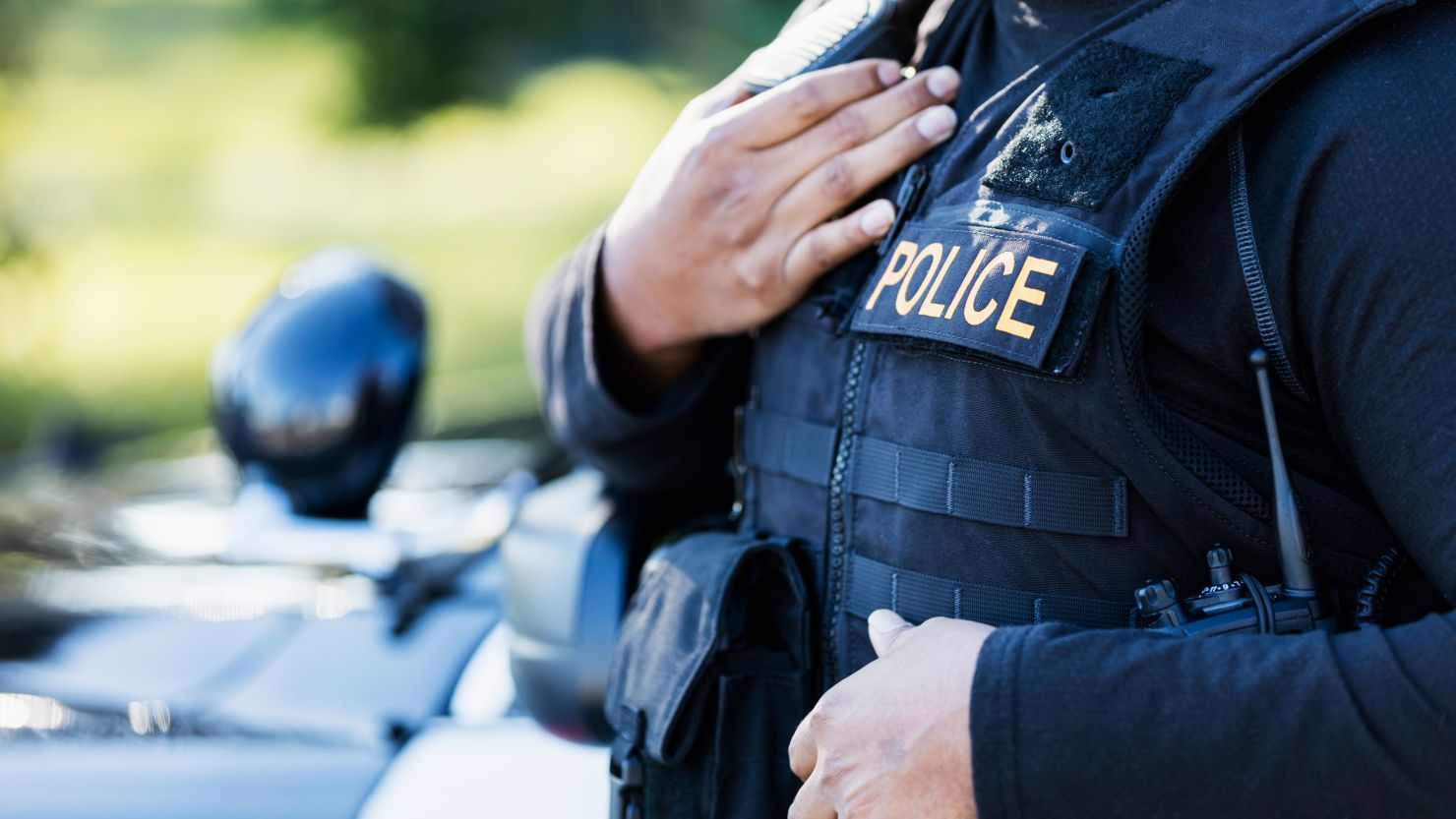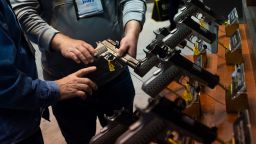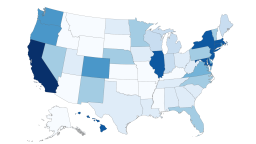The Supreme Court decision which struck down a New York law placing restrictions on carrying a concealed gun outside the home will have drastic consequences for law enforcement, inhibiting their ability to remove illegal guns from the street and protect the public from shootings, officials said.
In the widest expansion of gun rights in a decade, the court’s decision Thursday changed the framework lower courts across the nation will use as they analyze other gun restrictions. The case was remanded to the lower court and the law is still in effect until it goes through the lower court process.
The court’s ruling in the case, brought by an affiliate of the National Rifle Association, allows more guns to be publicly carried in the largest city in the country and could nullify laws nationwide, including those in Massachusetts and California. Previously, New York state law required people to show “proper cause” before obtaining the license.
The ruling comes at a time when law enforcement officials continue to battle a surge in gun violence, a proliferation of guns on the street and the fast-growing threat of unregulated ghost guns since the onset of the pandemic. Law enforcement officials said the decision will have a ripple effect, exacerbating the issue of gun violence and making it more difficult for officers to identify those who are illegally carrying guns in public.
“Because the State of New York issues public-carry licenses only when an applicant demonstrates a special need for self-defense, we conclude that the State’s licensing regime violates the Constitution,” Justice Clarence Thomas wrote for the court’s 6-3 majority.
New York City Police Commissioner Keechant Sewell asserted “nothing changes” after the ruling, adding “if you carry a gun illegally in NYC you will be arrested.”
“When we open the universe of carry permits it potentially brings more guns to the city of NY…that should concern us all,” Sewell said Thursday.
But the high court’s ruling “changed the game” for the everyday police officer in the country, New York City Mayor Eric Adams, a former NYPD captain, said during an appearance on MSNBC.
“When you look at how do you distinguish between a legal carry and someone who’s carrying it illegally, it is just really challenging,” Adams said. “And then responding to the bad days that individuals have in the city, in big cities across America, but they’re armed with a weapon. You can see a simple dispute elevate to a shooting. This is a real concern, which the Supreme Court put in place.”
Similarly, Manhattan District Attorney Alvin Bragg said the court’s decision “severely undermines public safety not just in New York City, but around the country,” adding his office is analyzing the ruling and crafting gun safety legislation which will take steps to “mitigate the damage done today.”
Ruling comes as police push for gun control
The controversial “constitutional carry,” or permitless carry, legislation has gained momentum during this year’s legislative sessions in several states despite law enforcement officials arguing the permit requirement is vital to upholding standards of public safety. Without it, they say, officers face an even greater challenge in combating gun violence, further complicating their encounters with citizens.
Major national police groups have joined forces in pushing for legislation in Congress calling for a crackdown on gun crime. The Fraternal Order of Police (FOP) and the International Association of Chiefs of Police (IACP) have actively supported gun legislation efforts to address gun violence and “identify workable solutions in order to dramatically reduce the numbers of Americans killed from unprovoked and unspeakable violence,” according to a joint letter released in late May.
An amicus brief filed in September 2021 by law enforcement agencies in several cities – including Boston, Los Angeles Philadelphia and Washington, DC – emphasized the court should uphold New York’s law, arguing they view the “prospect of removing local discretion from concealed-carry licensing regimes with alarm.”
“No credible data suggest that increasing the number of people carrying concealed firearms will improve public safety, particularly in our large cities,” the brief states.
A study published in January by Everytown for Gun Safety, a leading non-profit organization focusing on gun violence prevention, found there is a direct correlation in states with weaker gun laws and higher rates of gun deaths, including homicides, suicides and accidental killings.
Twenty-five states generally allow people to carry concealed weapons in most public spaces without any permit, background check or safety training, according to Everytown.
The study found states weakening their permitting systems have seen an 11% increase in handgun homicide rates and a 13% to 15% increase in overall violent crime rates.
In a statement to CNN, John Feinblatt, president of Everytown, said, “law enforcement officers have told us time and again that allowing more guns into public places will make their jobs harder and more dangerous, but that’s exactly what that ruling does.”
Chiefs worry about more guns on the street
Depending on the outcome of lawsuits challenging gun-control measures in each state, the new precedent could result in police losing their lawful right to use reasonable suspicion under the Fourth Amendment to stop, search and arrest people who are illegally carrying guns, according to Michael Harrison, police commissioner of the Baltimore Police Department and president of the board of the Police Executive Research Forum.
Officers are trained to identify the characteristics of people who are armed with concealed weapons, Harrison said, and individuals who carry in public with a permit are law-abiding citizens. But the concern is if more people carry weapons, criminal offenders will be more emboldened to carry and use weapons illegally, making it even more difficult for police to identify them, Harrison added.
“With the kind of violent crime we see here in Baltimore, the number of homicides and shootings, we see people’s willingness to use those guns only because they made a conscious decision to carry them unlawfully. This decision now exponentially exacerbates that problem,” he said.
Los Angeles Police Department Chief Michel Moore told CNN the decision puts law enforcement in a “nightmare of a situation” and has the potential to have a “devastating impact” in California, which has the strongest gun laws in the country, according to Everytown.
“State laws in California are in conflict with the Supreme Court’s decision, so we can expect litigation as a state,” Moore said, adding the state law requires any person who carries a concealed weapon in public to obtain a permit.
Moore’s agency recovered more handguns in 2021 than it did in more than a decade, Moore said, noting more than two out of 10 of those guns were privately manufactured, without serial numbers and untraceable.
Laws such as permitless carry also complicate the law enforcement response to active shootings, Teresa Ewins, police chief of Lincoln, Nebraska, previously told CNN.
Officers responding to an active shooter scenario are forced to make split-second decisions to stop the imminent threat to public safety, but a bystander on the scene who is carrying a weapon only complicates the encounter, Ewins said.
“If someone feels the right to go into a business or a coliseum or an arena [while concealed carrying], then there’s going to be an argument,” Ewins said. “Then law enforcement will have to respond and try to de-escalate. This is just another layer of difficulty for them because it’s hard to understand who has a gun, who doesn’t have a gun and then having people who are not trained.”
Charles Ramsey, a CNN law enforcement analyst and former commissioner of the Philadelphia Police Department, said the ruling will also endanger officers with the expectation there will be “more people armed now than ever before.”
“If people don’t have to show any justification as to why they should carry a firearm concealed, that means you’re going to wind up with even more people who really have no valid reason and should not be carrying a concealed weapon.”
Common incidents such as road rage or street disputes are likely to escalate into gunplay if more people are armed, Ramsey said.
“That’s where we start to see people who are not really criminals but because they are armed and don’t have training, there’s no requirement that they understand the law in terms of when it’s appropriate and when you can legally use deadly force,” he said. “And how can you not expect bad things to happen?”
CNN’s Tierney Sneed, Ariane de Vogue and Whitney Wild contributed to this report.





